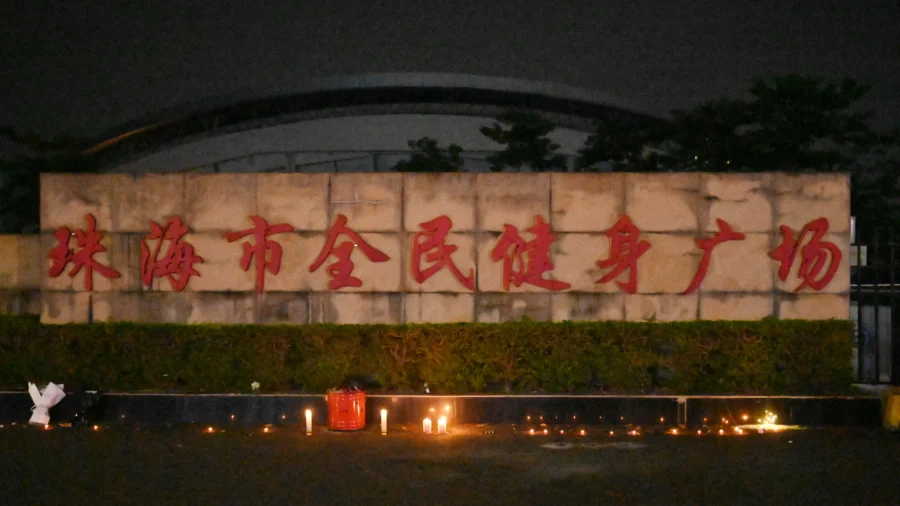A Chinese man who killed at least 35 people last month by driving his car into a crowd was sentenced to death on Dec. 27, amid growing concerns over a recent wave of deadly attacks across the country.
The driver, identified as Fan Weiqiu, acted out of anger stemming from “a broken marriage, personal frustrations, and dissatisfaction with the way financial assets were divided during his divorce,” according to a statement from the intermediate court in Zhuhai, a city in southern China.
Fan pleaded guilty to endangering public safety through dangerous methods, according to the court’s announcement.
The incident occurred on the evening of Nov. 11, when Fan drove his SUV into a group of people exercising at the Zhuhai Sports Centre.
It took nearly 24 hours for Chinese authorities to report on the casualties from the violent attack. According to local police, at least 35 people have died, with 43 others suffering severe injuries as a result of the incident. At the time, the authorities said Fan, who was in a coma and had injuries consistent with self-harm, was apprehended at the scene.
Swift Censorship
On China’s internet, censors responded quickly, suppressing eyewitness accounts and videos related to the incident. By the evening of Nov. 12, searches on the popular microblogging platform Weibo yielded mostly official statements, with little presence of videos or photos of the incident.
The sports complex was closed on the day of the attack. On the morning of Nov. 13, members of the public left bouquets at one of the gates, only to see them removed within minutes. Some cleaning staff told AFP that they were following an “order from the top.”
Meanwhile, BBC China correspondent Stephen McDonell was shoved by a man while reporting outside the complex on Nov. 12. While the man’s identity remains unclear, the BBC pointed out that such incidents are not uncommon in China, where local Communist Party officials often recruit groups of individuals to act as outraged locals, tasked with obstructing foreign reporters from covering sensitive events.
Recent Deadly Incidents
The incident, described by some Western media outlets as the deadliest in a decade, was one of a spate of tragic events that have occurred across China in recent months.
On Oct. 28, at least five people, including three children, were severely injured in a stabbing incident, according to local police, who identified the suspect as a 50-year-old man surnamed Tang.
On Nov. 16, eight people were killed and 17 others injured during a mass stabbing rampage at a vocational college in eastern China. Arrested at the scene was a 21-year-old male, identified only as Xu—a former student at the Wuxi Vocational College of Arts and Technology in Yixing in Wuxi, Jiangsu Province. Police said he later confessed to the killings.
On Nov. 19, a driver rammed his vehicle into a crowd outside a primary school in Changde, central Hunan Province, injuring an unspecified number of people.
Recent waves of random attacks have sparked concerns among outside observers, with some highlighting a growing desperation under the tight grip of the Chinese Communist Party.
“Logically, if someone has a grievance, they should target the person responsible. But he may not even be able to find that person,” Li Yingzhi, an exiled rights activist, previously told The Epoch Times. “Why resort to killing innocent people? Because he has reached complete despair and no longer wants to live.”
Li links these violent attacks to systemic issues in China, where people were left with little recourse to seek justice or voice dissent.
“First, there is suppression of free speech and a lack of press freedom. Second, the petitioning system is ineffective. Third, the judiciary fails to function properly. These are all systemic issues,” he said.
“If there were effective channels to resolve problems, it wouldn’t have come to this.”
Katabella Roberts and Cindy Li contributed to this report.
From The Epoch Times

